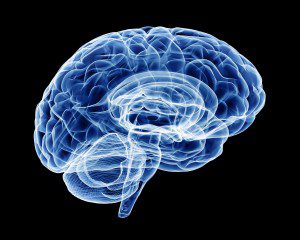 Many religious people are suspicious of significant issues in science. Many people—religious and non-religious alike—reflect suspicions and indifference toward the church (especially among younger people); one of the reasons for many young people leaving the church is the perception that churches appear hostile to science, as a Barna study claims. Could it be that many if not all fears and suspicions of science as well as the church are in the head?
Many religious people are suspicious of significant issues in science. Many people—religious and non-religious alike—reflect suspicions and indifference toward the church (especially among younger people); one of the reasons for many young people leaving the church is the perception that churches appear hostile to science, as a Barna study claims. Could it be that many if not all fears and suspicions of science as well as the church are in the head?
Regarding the suspicion of key considerations in science, specifically as it relates to Evangelical Christianity, it is worth noting the cultural, emotional and psychological damage caused by the aftermath of the Scopes “Monkey Trial” in 1925. It is still present in conscious or unconscious ways. The impact of that trial has led George Marsden to write, “It would be difficult to overestimate the impact” of the trial “in transforming fundamentalism.” George Marsden, Fundamentalism and American Culture: The Shaping of Twentieth-Century Evangelicalism — 1870-1925 (Oxford: Oxford University Press, 1980), p. 184. Given the damage done to the movement as a result of that trial, I wonder how many of Evangelical Christians’ suspicions of science are in the head.
It is important for churches and Christian educational institutions to work hard on the integration of faith and science. Further to what was stated above concerning many young people leaving church today, some Christians’ fears and/or disregard for science in the church can lead scientifically minded and vocationally oriented individuals to feel isolated and leave church. David Kinnaman addresses this concern and many others in You Lost Me: Why Young Christians Are Leaving Church…And Rethinking Faith (Baker Books, 2011). Kinnaman quotes a young man named Mike, who says: “I knew from church that I couldn’t believe in both science and God, so that was it. I didn’t believe in God anymore” (p. 138). Christian leaders such as myself need to pursue the integration of faith and science in ways that foster and strengthen these respective domains (regarding this subject, see my recent post titled “Missing Links: On Faith and Science”).
With these points on the need for integration in mind, let’s turn to consider the relation of the brain, body, and beliefs. The hope is to show through such reflections as these that there is no necessary hostility between science and faith; perhaps the hostility and suspicion between science and religion is all in the mind. By overcoming the disconnect, we might be in a better position to connect people with church.
The brain, the body and beliefs are intimately connected. Take for example this PBS documentary titled “Faith and the Brain” that discusses how religious practices and beliefs influence the brain. So, too, there is a close connection between the rational and emotional dimensions of the brain, as discussed in the PBS documentary titled “The Adult Brain: to Think by Feeling”; their interaction is essential to one’s well-being.
One of the things that stand out to me from these studies is that we are fearfully and wonderfully made. As the Psalmist writes, “I praise you, for I am fearfully and wonderfully made. Wonderful are your works; my soul knows it very well” (Psalm 139:14; ESV). Religion should not fear science, but learn from scientific truth. I believe the more we learn from science, the more we will come to realize that we are truly fearfully and wonderfully made.
Greater consideration of scientific studies should demonstrate to Christians the profundity of biblical faith and its emphasis on the profound connection between the spiritual and physical dimensions. For example, orthodox Christianity prizes embodiment. We do not exist as disembodied spirits, but rather, as embodied souls. The eternal Word did not hover above the physical world, but became flesh and blood (John 1:14). Such theological considerations should help us to take seriously the scientific studies noted above that there is a close connection between the body, brain, and beliefs. Such theological considerations and scientific studies can also help churches foster greater inclusivity and connections with people who might otherwise leave church.
Let’s take two examples. First, let’s take technology. In view of the theological considerations and scientific studies noted above, churches should encourage parishioners to be mindful of how technology can impact them, often for the good, but also, often for the bad. Here is what one of my seminary students John Lussier writes,
My question(s) on embodied presence: When it comes to personhood and relationality, is there something important to our being bodied people? When we remove the body but leave communication, does this change how we relate? Christ came as an embodied human male, and not as a spirit or human soul without a body. Why is this important? Does the body matter or is it simply a tool for relationality? What happens when we use technology in place of our body to communicate? Is technology that removes the bodily presence an extension of the human, a dissection or something else entirely?
John is by no means antagonistic to technology; actually, he is quite adept at it. Still, he and I wonder why many people today often prefer texting to other forms of communication. What is the impact of texting on our relationships if it and other non-physically present means of communication do not complement but rather replace face-to-face communication? While technology can create venues for greater accessibility, virtual church gatherings through social media can never take the place of embodied church. Orthodox Christian faith requires that we come together as embodied souls, not disembodied spirits. Face-to-face interaction strengthens our faith; I believe this is what the writer of Hebrews has in mind: “And let us consider how to stir up one another to love and good works, not neglecting to meet together, as is the habit of some, but encouraging one another, and all the more as you see the Day drawing near” (Hebrews 10:24-25; ESV). I wonder if the decline in church attendance has something to do with the decline in face-to-face interaction in society in favor of virtual connections.
 Having spoken briefly of technology, let’s take a second example—race. Greater understanding of the brain may impact our view of racial dynamics and the need for greater inclusivity in the church.
Having spoken briefly of technology, let’s take a second example—race. Greater understanding of the brain may impact our view of racial dynamics and the need for greater inclusivity in the church.
Various studies suggest that exposure to the faces of people of different ethnicities activate the amygdala, which is associated with fear conditioning, far more than faces of the same racial background or ethnicity (personal note: it leads me to wonder if and how discussions about science might activate the amygdala in some religious people’s heads). It appears that greater exposure can reduce such increased activation. See Grit Herzmann, et al, “The neural correlates of memory encoding and recognition for own-race and other-race faces,” in Neuropsychologia 49 (11): 3103–3115. Intentionality in creating exposure through the diversification of churches may very well help churches decrease such fears and help people sense loving affirmation and experience inclusion.
Other studies suggest that people’s prejudices and beliefs impact facial processing and memory dimensions of the brain. See J. A. Richeson, et al, An fMRI investigation of the impact of interracial contact on executive function,” in Nature Neuroscience, 6 (12): 1323–1328. Based on such analyses, it has been claimed that beliefs can help control amygdala activation. In keeping with this point, it has been argued that racism decreases when we foster the convictions that there are racial differences as well as racial equality. Take for example the volume titled Are We Born Racist?: New Insights from Neuroscience and Positive Psychology (Beacon Press, 2010). The Judeo-Christian belief that we are all created in the image of God (See Genesis 1:16-27) and that God values diversity as revealed in all peoples of various cultures worshiping before the throne (Revelation 7:9-10) should lead church leaders to cultivate greater unity and inclusivity involving diversity in church bodies.
For these and other reasons, I ask: could it be that many if not all fears and suspicions of science as well as the church are somehow in the head?













